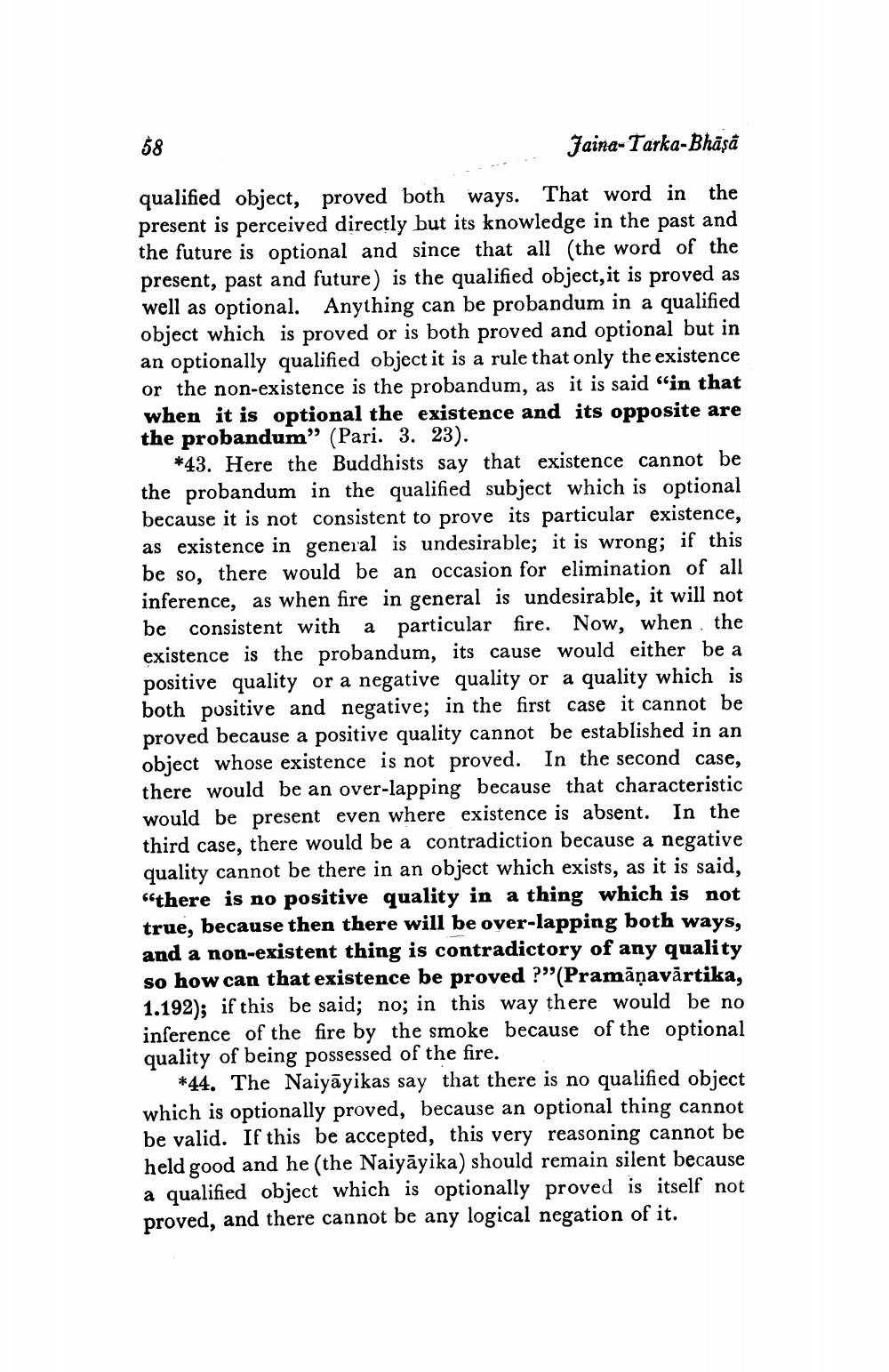________________
58
Jaina-Tarka-Bhāşa
O
.
qualified object, proved both ways. That word in the present is perceived directly but its knowledge in the past and the future is optional and since that all (the word of the present, past and future) is the qualified object, it is proved as well as optional. Anything can be probandum in a qualified object which is proved or is both proved and optional but in an optionally qualified object it is a rule that only the existence or the non-existence is the probandum, as it is said "in that when it is optional the existence and its opposite are the probandum" (Pari. 3. 23).
*43. Here the Buddhists say that existence cannot be the probandum in the qualified subject which is optional because it is not consistent to prove its particular existence, as existence in general is undesirable; it is wrong; if this be so, there would be an occasion for elimination of all inference, as when fire in general is undesirable, it will not be consistent with a particular fire. Now, when the existence is the probandum, its cause would either be a positive quality or a negative quality or a quality which is both positive and negative; in the first case it cannot be proved because a positive quality cannot be established in an object whose existence is not proved. In the second case, there would be an over-lapping because that characteristic would be present even where existence is absent. In the third case, there would be a contradiction because a negative quality cannot be there in an object which exists, as it is said, "there is no positive quality in a thing which is not true, because then there will be over-lapping both ways, and a non-existent thing is contradictory of any quality so how can that existence be proved ?"(Pramāņavārtika, 1.192); if this be said; no; in this way there would be no inference of the fire by the smoke because of the optional quality of being possessed of the fire.
*44. The Naiyāyikas say that there is no qualified object which is optionally proved, because an optional thing cannot be valid. If this be accepted, this very reasoning cannot be held good and he (the Naiyāyika) should remain silent because a qualified object which is optionally proved is itself not proved, and there cannot be any logical negation of it.




